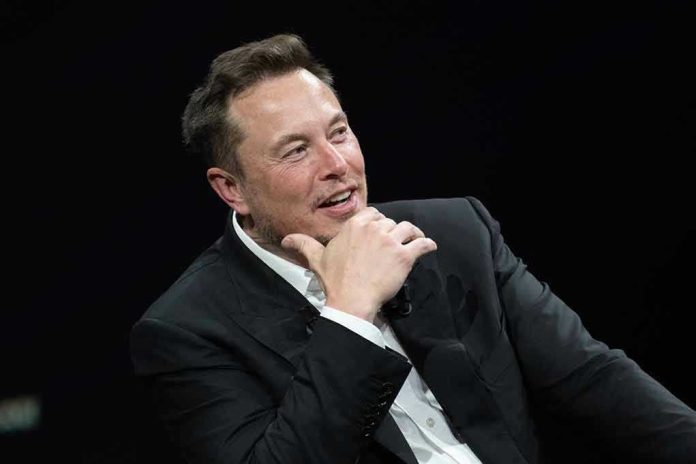
While Americans struggle under the weight of rising prices and past government overreach, Tesla just handed Elon Musk a potential $1 trillion payout—raising serious questions about priorities and accountability in corporate America.
Story Highlights
- Tesla shareholders approved an unprecedented $1 trillion pay package for CEO Elon Musk, contingent on performance targets over the next decade.
- The deal, the largest in corporate history, passed with over 75% shareholder support despite vocal opposition from some investors and advisory groups.
- Critics warn the package sets a dangerous precedent for executive compensation and exposes weaknesses in corporate governance.
- Supporters argue Musk’s leadership is indispensable, but debate continues over the influence of billionaire CEOs and the future of American innovation.
Shareholders Approve Historic $1 Trillion Pay Package for Musk
On November 6, 2025, more than 75% of Tesla shareholders voted to approve the largest executive compensation deal ever proposed—a staggering $1 trillion pay package for CEO Elon Musk. The decision follows months of intense debate, with some stakeholders arguing the package is necessary to keep Musk at the helm, while others warn it could undermine responsible governance. The compensation is tied to Musk meeting aggressive growth milestones over the next ten years, echoing his earlier record-breaking deal from 2018 but on a vastly larger scale.
The scale of this package is unprecedented, not just for Tesla but for any company in American history. Musk’s new deal allows him to receive hundreds of millions of Tesla shares if he achieves ambitious targets for market capitalization and operational performance. Shareholder approval came despite vocal warnings from proxy advisory firms and institutional investors, including pension funds and Norway’s Sovereign Wealth Fund, who cautioned that such concentrated power and wealth in one executive could backfire. The board defended the move, stating that retaining Musk is critical for Tesla’s continued dominance in the electric vehicle industry.
Debate Over Corporate Governance and Executive Power
Those opposed to the deal, including advisory firms like Glass Lewis and ISS, argue that this scale of compensation exposes fundamental weaknesses in corporate checks and balances. Critics warn that allowing a single executive such outsized influence and reward could set a dangerous precedent, undermining the principles of fair competition and responsible stewardship that underpin the free market. While some see Musk’s vision as indispensable, others question whether such extreme incentives are truly necessary—or if they further concentrate power in the hands of a few elitist corporate insiders, echoing trends of wealth inequality that frustrate many hard-working Americans.
The controversy comes at a time when everyday Americans are still grappling with the aftereffects of inflation and fiscal mismanagement from previous leftist administrations. Many see this headline-grabbing payout as yet another example of elites playing by a different set of rules, while ordinary citizens face increased scrutiny and government overreach in their own lives. The debate has reignited longstanding concerns about the influence of billionaire CEOs, the erosion of traditional values in boardrooms, and the need to protect the integrity of American capitalism from unchecked excess.
Implications for the Future: Risk or Reward?
If Musk meets the required milestones, not only could he become the world’s first trillionaire, but the deal could also alter how American companies compensate top executives for decades to come. Supporters argue that tying pay to performance aligns incentives and fuels innovation, especially as global competitors seek to undermine U.S. technological leadership. However, the risks are significant: should Musk fall short, Tesla could face leadership turmoil and a crisis of confidence among both investors and the broader public.
Tesla shareholders approve Elon Musk’s historic $1 trillion pay package — here’s when he could pocket the windfall https://t.co/hZBXrguUIW pic.twitter.com/DBQdSmLdKr
— New York Post (@nypost) November 6, 2025
The long-term effects of this decision remain uncertain, with experts divided on whether Musk’s leadership is truly irreplaceable or if Tesla’s future should rely less on the whims of one individual. As the debate continues, Americans watching from the sidelines are left questioning whether corporate America is doubling down on the same elite-driven models that have eroded trust and widened economic divides—or if this could be the spark that reignites American innovation and prosperity under President Trump’s pro-growth policies.
Sources:
Tesla TSLA shareholders shoot themselves in the foot, approve Elon Musk’s $1 trillion payday




